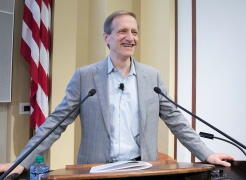Why Context Should Not Count
This paper is an invited comment on a paper by John Agnew. I largely agree with Agnew’s comments and thus focus on remaining areas wehre an alternative perspective might be useful. My argument is that political geographers should not be so concerned with demonstrating that context matters. My reasoning is based on three arguments. First, in fact context rarely counts (Section 1) and, second, the most productive practical goal for political researchers should be to show that it does not count (Section 2). Finally, a disproportionate focus on ‘context counting’ can lead, and has led, to some seriosu problems in practical research situations, such as attempting to give theoretical answers to empirical questions (Section 3) and empirical answers to theoretical questions (Section 4).









